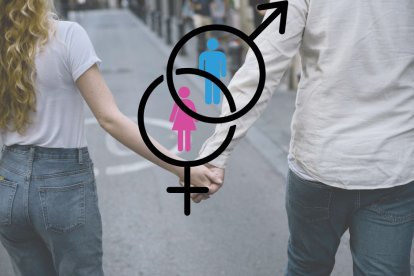Montana: Judge rules two-sex law unconstitutional
Judge Shane Vannatta struck down the law (which defines that there are only two sexes, "male and female") after a lawsuit was filed by a group of individuals who identify as transgender and non-binary, among other identities.

Female and male
A judge ruled that the Montana law defining only two sexes, male or female, is unconstitutional.
Judge Shane Vannatta struck down the law after a lawsuit was filed by a group of individuals who identify as transgender, non-binary, intersex and other identities. They argued that the law denies legal recognition and protection to people who identify as gender-nonconforming.
However, Vannatta did not determine that the law was unconstitutional because of the plaintiffs' argument. He explained that the title of the bill did not explain the content of the bill. He claimed that it was not understood whether the word "sex" referred to gender or to sexual intercourse.
"The title does not give general notice of the character of the legislation in a way that guards against misleading or deceptive titles," Vannatta wrote.
"Male or female."
The Montana law is similar to other laws passed in Kansas and Tennessee. It sought to "provide a common definition for the word sex when referring to a human."
According to the text, "male" is defined as "a member of the human species who, under normal development, has XY chromosomes and produces or would produce small motile gametes, or sperm, during his life cycle and has a reproductive and endocrine system oriented around the production of those gametes."
"Female" was defined as "a member of the human species that, under normal development, has XX chromosomes and produces or would produce relatively large, relatively immotile gametes or eggs during her life cycle and has a reproductive and endocrine system oriented around the production of those gametes."
The bill was passed in 2023 in a legislative session that also approved a ban on gender reassignment treatment for minors.
RECOMMENDATION





















